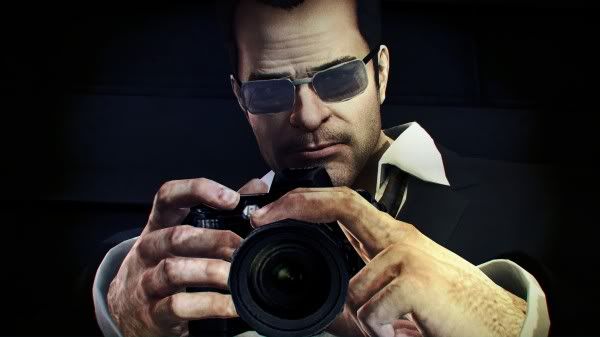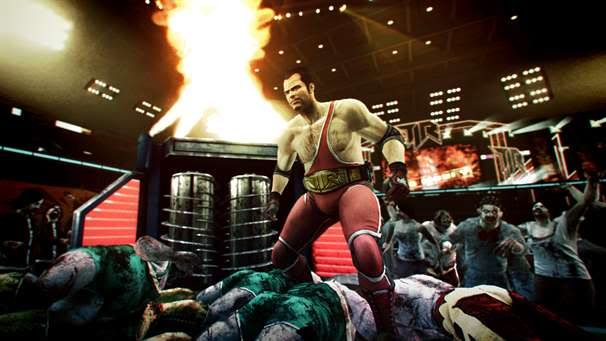This post has not been edited by the GamesBeat staff. Opinions by GamesBeat community writers do not necessarily reflect those of the staff.

We've heard a lot of talk in recent years about the over sexualization and inappropriate nature of most female video-game characters. And really, that conversation needed to happen. While we’ve come a long way from Lara Croft’s planet-shattering bust with realistic characters like Chell (Portal) and Elena Fisher (Uncharted series), there's no shortage of digital dolls whose sole purpose seems to be the titillation of men and disempowerment of women. One look at the controversy surrounding the portrayals of Catwoman and Harley Quinn in Batman: Arkham City is all the proof you need to see that we’re not yet where we need to be.
However, a big part of the conversation is being ignored. While we fight for more appropriate female protagonists and supporting characters in our games, we’re barely looking at the fact that most male characters suffer from the same problem. That’s not to say we should forget the plight of our female counterparts and focus solely on the men, but something should be said about the glut of perfectly cut and chiseled abs most space marines and paladins sport. That’s not healthy, but we’re not exactly doing anything about it, especially when a character like Dead Rising 2: Off the Record’s Frank West gets so much flak for not being the ideal masculine wish-fulfillment fantasy.
When Frank was first introduced in Dead Rising, he was designed to look, act, and sound like an average guy. Instead of being a typical, highly trained soldier, Frank was just a photojournalist who entered the fray selfishly in search of a scoop. The situation forced him to use everything in his surroundings to fight the zombie horde, from mundane two-by-fours to silly servbot masks. And aside from having some good upper-body strength and a penchant for pro wrestling, Frank was average in every way. He was flawed, from his abrasive and rash personality down to the way he huffed while awkwardly running a long distance between cases. He also had a nose that would make a tengu jealous, so he wasn’t likely to win any beauty contests either. This made it easier to like him, as players were able to put themselves in the shoes of this everyman, identifying with him in order to complete the gamer dream of being a regular person trapped in a zombie-infested mall.

Five years later, with Dead Rising 2 selling enough to warrant a director’s cut re-release, Capcom decided to capitalize on its success in a somewhat unusual way. Instead of just adding more to the tale of Chuck Greene and his daughter, Chuck was stripped away from the stage and replaced with Frank, creating a hypothetical “what if" scenario.
But this isn’t the Frank we all remember. A lot of time passed since his debut, and this version of Frank is out of shape, losing hair, and looking 20 years older. In terms of plot, it makes sense. Frank was infected sometime during Dead Rising, so he’s been forced to take Zombrex, an experimental drug that provides the crux of DR2’s plot, every day for five years. Combine that degenerative condition with the abuse of alcohol and wealth that came from his found-and-lost fame, and you can see why Frank might not look like he used to.
What’s disappointing is the reaction that fans have had. One friend I regularly play with online refuses to play as Frank in sandbox mode co-op, choosing to be the second player who takes the role of Chuck in the oddest fever dream ever. Simply put, “Frank is fat.” This isn’t an isolated sentiment either. Complaints about Frank letting himself go or looking haggard are easy to find across message boards and communities talking about the title.

This isn’t a healthy behavior. Male-body-image disorder is a very real problem. The reason we don’t hear about it often is the same reason that an alarming percentage of male rape goes unreported. As a society, we still have our gender roles, and it’s commonly believed that men don’t struggle and suffer with the same issues that women do. We’re supposed to “suck it up” and “take it like a man," dealing with things internally using true grit, testicular fortitude, and other nonsense. In reality, men and women share a lot of issues. Again, that’s not to undervalue the struggles of women or to ignore them. We’re all in the same boat, and it’s time we started recognizing that.
As someone who gained the freshman fifteen about three times during college and never got rid of them, I can tell you that it’s a little disheartening to hear other men — likely not supermodel material themselves — harping on Frank’s physique and looks. Everyone at some point questions his or her appearance. That’s why steroid abuse and exercise addiction exist. To think that males don’t often wonder about having a body like the square-jawed protagonists they see in games and movies is just plain ignorant.
Criticizing Frank’s physique isn’t conducive to getting proper demographic representation in the titles we enjoy. Playing an every(wo)man creates a sense of immersion. In our struggle to provide equal representation of different genders, races, and backgrounds in our games, we should really start to pay more attention to the body types that are being portrayed as well. Not just for the ladies. But for the gentlemen as well.
We come in all shapes and sizes, but our minds, personalities, and experiences define us. Characters like Frank are healthy for gaming, as they show that even an average person can be as much of a hero as the muscular soldiers and busty femme fatales of our medium.
That’s a great message for anybody, no matter what you have going on between your legs.
